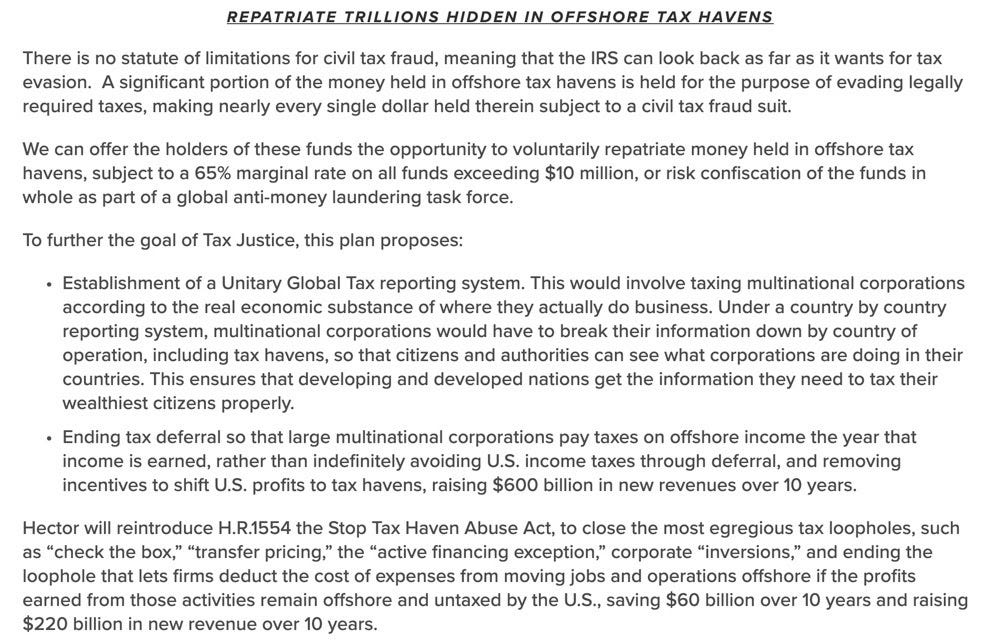Build a progressive foreign policy platform with me
Speaking Security Newsletter | Advisory Note for Organizers and Candidates, n°27 | 21 July 2020
Even if you’re not actively building a foreign policy platform, I hope what follows is at least useful in providing things to look out for when evaluating others’ policy positions.
A progressive foreign policy platform in six steps
1. Decide who foreign policy is supposed to be for
Politics is the fight over who gets what, so winners and losers are produced by the status quo. SPRI’s whole thing is aligning foreign policy with working-class interests, in large part because that’s the constituency who’s disproportionately maligned by the current arrangement. Politicizing foreign policy in this way is the easiest way to shoot down any claims that the ‘national security’ consensus is somehow beyond ideology — its political effects are undeniable.
2. Develop a methodological framework
Basically just a list of organizing principles that’s a mix of what you care about (values) and the main things you see as wrong with the status quo. Here’s a list of SPRI’s tenets, which helps a lot with our research:
Foreign policy starts at home (trade-offs/guns v butter; spending priorities)
Do No Harm (US wars/‘global leadership’ is fueled by a self-assured benevolence)
Agency (Non-US populations described as ‘dangerous’ or ‘collateral damage’ instead of human beings we should be listening to)
Accountability (decision-makers are insulated from the consequences of their actions)
Foreign policy ends at home (the ways in which war ‘comes home’, example: militarization of police)
3. Feature the stuff that gets down to the root causes
Just one example: I don’t think you can be anti-war without being anti-imperialist. So that involves ending the legal authorities that enable endless war (2001 AUMF, Section 333), and the appropriations that make empire possible (the military budget). A case study elaborating these points w/r/t Iran, here.
4. Borrow from others
I’ve found that the best foreign policy platforms come from congressional candidates, particularly primary challengers to incumbent Democrats. Here are two former candidates’ platforms I was particularly struck by:
5. Domesticate foreign policy
This isn’t just about making foreign policy seem more ‘real’ but also useful to people participating in active political struggles right here at home. So regarding inequality (a serious and urgent threat to working-class security), you can reference converting the funds obligated for defense to useful purposes instead, but there’s also a whole bunch of really creative ways to show what working-class people stand to gain from a radically altered foreign policy, too.
This is a major reason why I was so impressed by Hector Oseguera’s anti-corruption platform; it offers clear incentives for reconciling a domestic threat with a (really cool) global solution:
6. Recognize that progressive domestic policies can be useful for foreign policy, too
For example, I argue here that despite the Green New Deal’s popularity, it’s still underrated because its (really positive) implications for foreign policy aren’t regularly featured in leftist discourse. So if you come across someone from Sunrise Movement, please inform them of their (perhaps unintentional) brilliance.
Conclusion
None of this is to say that every domestic issue is also a foreign policy issue. Take health care, for example. It’s useful to invoke foreign policy when answering the ‘How Do You Pay For It’ question (two answers: [a] divert monies for the military to health care; [b] we can pay for Medicare for All the same way we paid for every war since Vietnam [credit]). But you don’t want to pull a Senator Warren/Center for American Progress and say that we need M4A because it helps ensure that we have a healthy population to serve in the military. I want M4A because I don’t want to (again) experience financial ruin by going to the doctor, not because I worry that China is going to invade.
Thanks,
Stephen (@stephensemler; stephen@securityreform.org)




